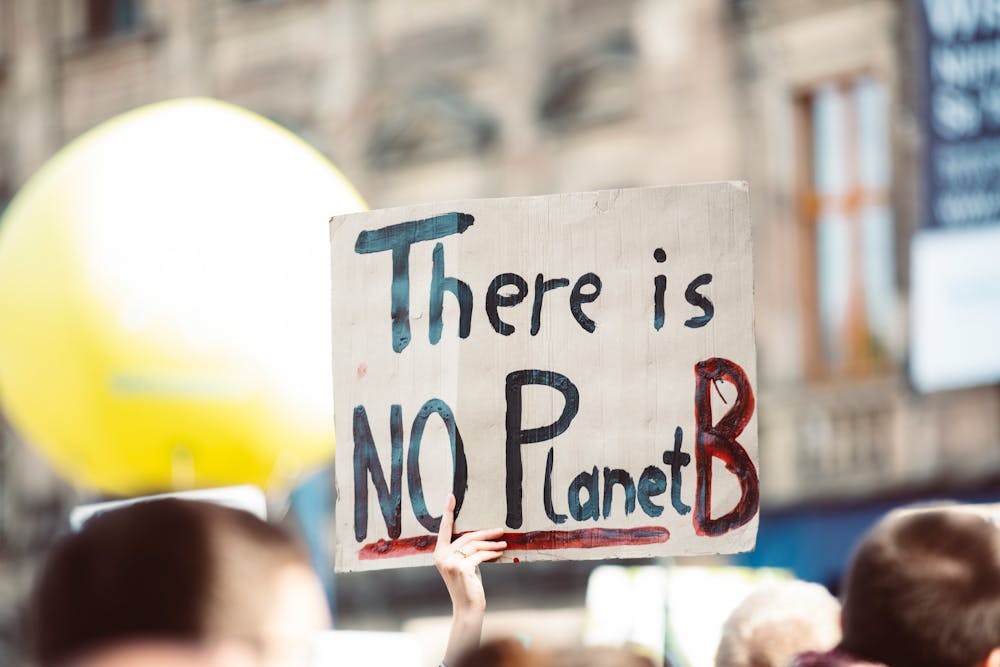Reviews
The Growing Impact of Climate Anxiety on Younger Generations

Rising global temperatures, extreme weather events, biodiversity loss, and long-term environmental changes have made climate issues a central part of everyday life, especially for younger generations (Gen Z and younger Millennials), who have started to feel the emotional toll of this constant exposure. In fact, many report feeling overwhelmed, uncertain, or helpless when thinking about the planet’s future. While not officially classified as a mental health disorder, this emotional response is widely referred to as climate anxiety. Now, what’s the exact impact of climate anxiety on younger generations? And most importantly, what can you do to lessen its effects? Stick around to find out!
What is climate anxiety?
To quote the United Nations Children’s Fund (UNICEF):
”Climate anxiety can be described as heightened emotional, mental or physical distress in response to dangerous changes in the climate.”
Unfortunately, climate anxiety is not limited to a single event. Rather, it’s caused by constant exposure to climate-related content across news outlets, documentaries, school discussions, and especially social media.
Why younger generations are more affected
In a study conducted by The Lancet, 60% of 16-25 year-olds have described themselves as very or extremely worried about climate change. But why is this group particularly vulnerable to climate-related anxiety?
It’s because they have never known a world without the climate crisis in the background. They’ve grown up surrounded by warnings, forecasts, and urgent calls to action from early school years.
What’s more, unlike older generations, who may view climate change as a slow-developing issue, Gen Z and younger Millennials are more likely to see it as a direct and personal concern. They’re also more emotionally invested, often linking climate outcomes with their own life plans (e.g., deciding where to live, what to study, whether to have children, etc.), which is precisely why climate anxiety affects them more severely.
In some cases, this ongoing stress can lead to stronger psychological reactions. Climate anxiety can escalate into symptoms like sleep disturbances, concentration issues, or even panic attacks. When this happens, the emotional response may start interfering with daily life. Extra support may be necessary, including strategies or resources for dealing with panic attacks, especially if the anxiety becomes difficult to manage alone.
The impact of climate anxiety on behavior and mindset
The emotional toll of climate anxiety often leads to noticeable changes in how younger generations think, plan, and live.
Some of the most common responses include:
- Adopting more sustainable habits – Many reduce their environmental footprint by flyingless, shopping second hand, using public transport, or choosing plant-based diets.
- Rethinking career choices – Climate-related stress can push people toward fields like environmental science, advocacy, public policy, or sustainable design.
- Delaying or reconsidering major life decisions – Questions about whether to have children, where to live, or how to plan for the future often factor in long-term climate predictions.
- Engaging in activism or community work – Some turn their anxiety into action by participating in protests, climate organizations, or local sustainability efforts.
Experiencing emotional burnout or eco-paralysis – In other cases, the pressure to ”do something” can backfire, leading to avoidance, fatigue, or the belief that personal actions aren’t enough to matter.

Are there any positives?
The impact of climate anxiety isn’t always negative. In many cases, climate anxiety actually becomes the starting point for positive engagement and long-term resilience.
Some of the potential positives include:
- Stronger peer communities – Young people who care about climate issues often find support in others who feel the same. This shared concern helps build friendships, organize collective efforts, and reduce feelings of isolation.
- Increased civic engagement – Anxiety can translate into participation. From voting on climate policy to joining local environmental groups,many young people are taking a more active role in shaping their communities.
- New mental health support systems – As awareness of climate anxiety grows, so does the availability of resources. Schools, universities, and therapy providers are beginning to offer space for these conversations, and are sometimes even adjusting support to address climate-related stress.
- Creative and tech-driven solutions – The emotional urgency young people feel is also fueling climate-focused innovation, giving birth to green startups, along with new sustainability tools and educational content.
What you can do if you’re feeling overwhelmed
Contrary to popular opinion, there isn’t only so much you can do about the impact of climate anxiety.
As a matter of fact, if you find yourself feeling the adverse effects, make sure to:
Set boundaries with climate-related content
Constant exposure to alarming headlines or social media posts can increase stress. Take breaks when needed and limit how often you engage with climate news.
Focus on what’s within your control
You don’t have to, nor can you fix everything. What you can do, however, is focus on a few positive habits. You’d be surprised by how much reducing waste, supporting sustainable businesses, or volunteering can help the Planet. Not to mention, they give you a purpose that helps combat climate anxiety.
Talk about it with someone
Keeping the anxiety to yourself can make it worse. Share how you’re feeling with a friend, parent, teacher, and/or therapist to normalize the experience.
Join a cause or local initiative
Taking part in community clean-ups, climate education, or youth-led organizations can turn anxiety into action and connection.

Find healthy outlets
Exercise, art, journaling, or time in nature can help regulate your mood and reduce emotional overload.
Don’t let climate anxiety impact you any longer
The impact of climate anxiety is becoming harder to ignore, especially among younger generations who are deeply aware of the world they’re inheriting. And while the emotional toll is real, it’s not something you have to carry alone or without direction. Understanding where these feelings come from is the first step. Learning how they affect your choices, your mindset, and your relationships is the second—and it can help you respond in a more grounded, intentional way. And know this: climate anxiety may not go away entirely. But with the right tools, support, and mindset, you can learn to live with it, channel it into something meaningful, and protect your mental health along the way.

-

 World1 week ago
World1 week agoEthiopian volcano erupts for first time in thousands of years
-

 Health2 days ago
Health2 days ago8 kittens die of H5N1 bird flu in the Netherlands
-

 Legal7 days ago
Legal7 days agoUtah Amber Alert: Jessika Francisco abducted by sex offender in Ogden
-

 US News6 days ago
US News6 days agoExplosion destroys home in Oakland, Maine; at least 1 injured
-

 Health7 days ago
Health7 days agoMexico’s September human bird flu case confirmed as H5N2
-

 Legal3 days ago
Legal3 days ago15 people shot, 4 killed, at birthday party in Stockton, California
-

 World7 days ago
World7 days agoWoman killed, man seriously injured in shark attack on Australia’s NSW coast
-

 Health6 days ago
Health6 days agoMarburg outbreak in Ethiopia rises to 12 cases and 8 deaths




